On the morning of July 24 in Hanoi , Tien Phong Newspaper organized a seminar on "Making space technology a new driving force for development" with the participation of guests who are international and domestic experts, representatives of state management agencies and businesses in the space technology industry.
At the seminar, experts focused on discussing opportunities and challenges in space technology development in Vietnam, proposing effective policy mechanisms and cooperation models, thereby contributing to promoting the formation of a national innovation ecosystem with strong participation from the space technology sector.
'Golden time' to develop space technology
In his opening remarks, journalist Phung Cong Suong - Editor-in-Chief of Tien Phong newspaper said that in the 21st century, space technology is no longer a field limited to the space exploration programs of a few countries. Instead, this technology industry has become a strategic pillar of many modern economies , with practical applications in life such as weather forecasting, disaster prevention, telecommunications, smart agriculture, environmental monitoring, urban planning, logistics, as well as in the fields of security and defense.
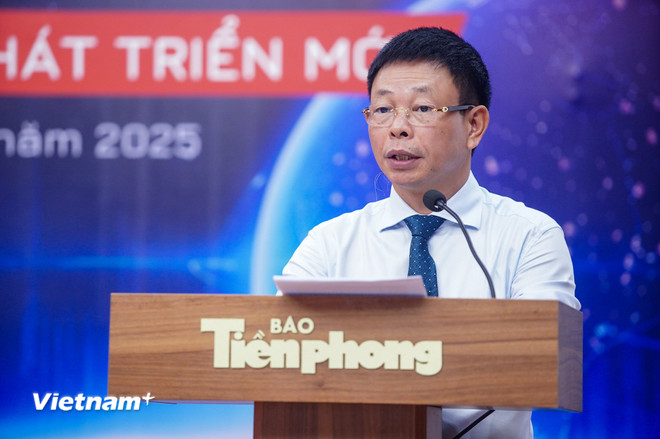
In Vietnam, although space technology is still in its early stages of development, we have made important steps. Mr. Suong emphasized that we are facing a very important moment. The Politburo has issued Resolution No. 57-NQ/TW, clearly identifying science, technology and innovation as the main driving force of economic growth. In particular, space technology is one of the priority areas for development to serve the national security-defense strategy and sustainable development.
The Government is also gradually building policies to support infrastructure, finance and human resources to create favorable conditions for the space industry to take off, aiming to form a Vietnamese space industry in the future.
At the seminar, Dr. Nguyen Quan, former Minister of Science and Technology, emphasized that in the current period, space technology plays a particularly important role in the Vietnamese and global economy. Major countries will not achieve their goals without space technology equipment. If we can master technology ourselves, and partly master the essential space, then Vietnam will have the opportunity to master this technology and apply it to socio-economic development.
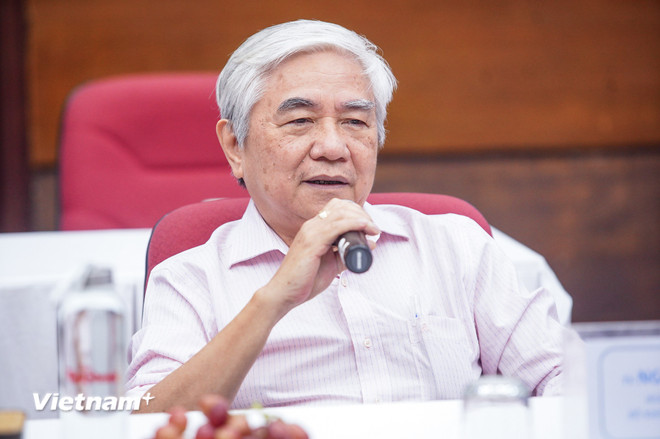
In recent years, Vietnam has paid special attention to this field, as evidenced by the Vietnam Space Center project in Hoa Lac, the largest science and technology project ever. In addition, Binh Dinh province has also built a Science Discovery Center, which has many items related to space technology, attracting a large number of students.
According to Dr. Nguyen Quan, in the coming time, Vietnam needs to be more determined and drastic in investing in space technology. There needs to be a national conference on this field to restart Vietnam's space technology development strategy, which was issued a long time ago and needs to be updated. Space technology is not only a strategic technology but also a leading technology, along with fields such as semiconductor microchips or nuclear energy.
Also according to Dr. Nguyen Quan, attracting the participation of Vietnamese scientists at home and abroad is very important to achieve the goal of Resolution 57, making Vietnam a high-income developed country by 2045.
"I think we must invest more deeply and more in space technology, because national security and defense needs are posing issues that Vietnamese scientists must pay attention to. We cannot protect our territorial sovereignty and space sovereignty if we do not have good scientists in space technology," said Dr. Nguyen Quan.
Perfecting institutions and investing large enough to develop space technology
At the seminar, Mr. Ly Hoang Tung - Deputy Director of the Department of Science, Technology and Technology (Ministry of Science and Technology) stated that developing space technology is an inevitable requirement to ensure national sovereignty, enhance the internal capacity of science and technology and affirm Vietnam's position in the region. The Government has had many policies to promote this field, typically Decision 1131/QD-TTg dated June 12, 2025, including aviation and space technology in the list of 11 strategic technologies prioritized for investment and development.
Space technology products are also on the priority list, including: low-altitude remote sensing and telecommunications satellites, ground stations and satellite control systems, and unmanned aerial vehicles.
Among the 21 major problems announced by the Ministry of Science and Technology, there are two problems that are of interest to many research organizations: research and production of low-altitude satellites and construction of a national forest resource monitoring system using digital platforms and remote sensing technology.
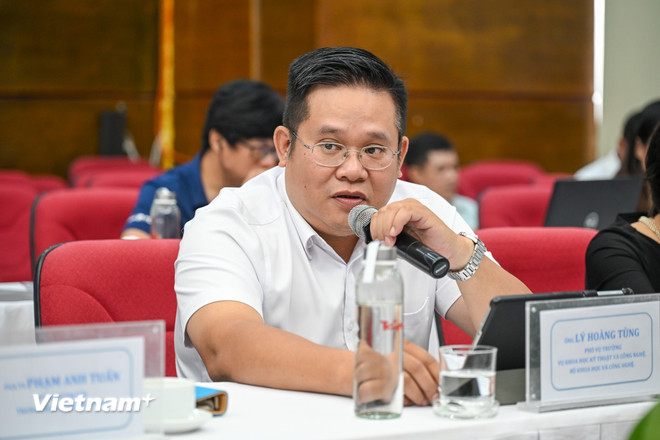
Mr. Tung said that Vietnam has the ability to design and manufacture small satellite systems, UAVs, balloons, etc. However, commercializing products is still a big challenge due to limited competitiveness.
Dr. Nguyen Quan emphasized the need to improve the institution and strengthen the Vietnam Space Committee - an inter-sectoral coordination agency to effectively coordinate between ministries, sectors and research organizations. At the same time, it is necessary to review the investment strategy, select appropriate base technology and avoid spreading, focusing on developing low-orbit satellites, small satellites and ground systems.
He proposed the establishment of a national program on space technology managed by the Ministry of Science and Technology and run by the Vietnam Space Committee. This program should concretize the viewpoints in Resolution 57, 193 and Decision 1131, focusing on building large technology projects and assigning a 'chief engineer' who has the highest technical responsibility, autonomy and is exempt from risks.
According to Mr. Quan, Vietnam cannot rely on technology transfer from outside due to national security and defense factors. Therefore, it needs a large enough investment from the State to develop this 'aristocratic' field, accepting risky investments, a culture of failure and risks in science and technology.
In addition to financial mechanisms, he emphasized the policy of training and attracting talents, especially young people. According to him, the State should order training as in the subsidy period, to create the next generation of scientists with solid basic research capacity.
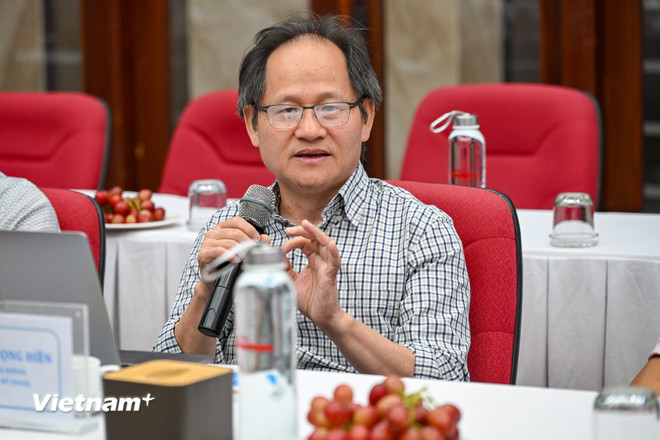
Dr. Nguyen Trong Hien - Expert of the US National Aeronautics and Space Administration (NASA) expressed his agreement with the proposal on pilot mechanism and autonomous environment for scientists, saying that if the mechanism problem is solved, Vietnam will go much further in the space field.
Mr. Pham Anh Tuan - General Director of Vietnam Space Center added that this unit has built a space exploration center with science, technology and astronomy content. Since 2006, the Center has trained a team of young engineers who can control satellites - an important foundation for breakthroughs.

He said that Resolution No. 57-NQ/TW is the first political basis that clearly identifies space technology as a driving force for economic growth. Space should be considered one of Vietnam's five strategic spaces, along with land, sea, sky and cyberspace. He proposed to include this content in the Resolution of the next Party Congress to create long-term progress for Vietnam's space industry.
Dr. Nguyen Luong Quang, an expert from the Institute of Atomic Energy and Alternative Energy (CEA Paris Saclay, France), said that in addition to formal training, there should be specialized schools and startup incubator models for space technology. He proposed simultaneously investing in basic research, transferring technology to private enterprises, opening data and training the next generation. These are essential factors to form a strong ecosystem./.
Source: https://www.vietnamplus.vn/da-den-luc-can-dau-tu-sau-hon-cho-nganh-cong-nghe-vu-tru-post1051552.vnp



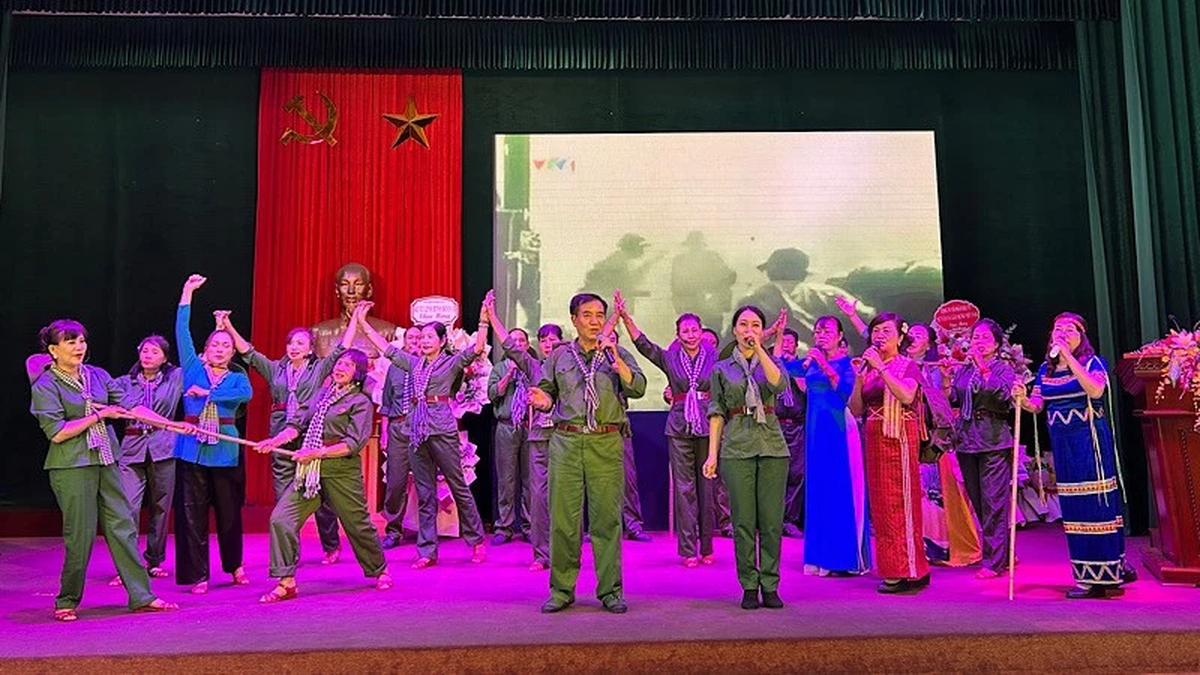
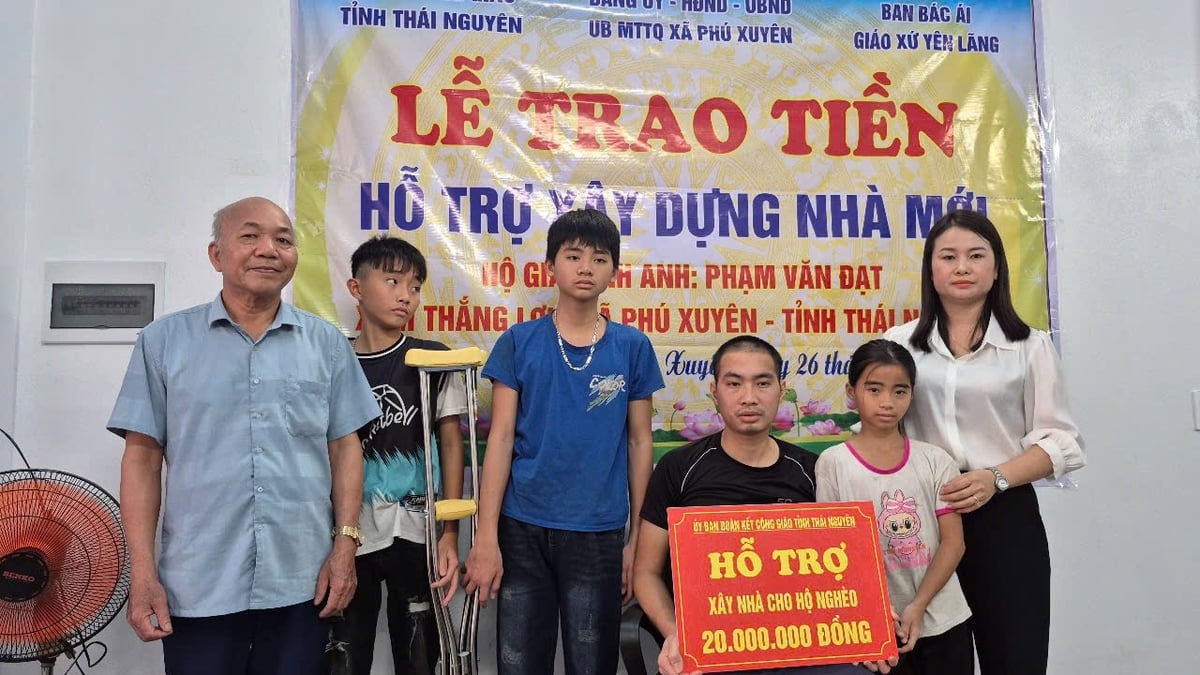

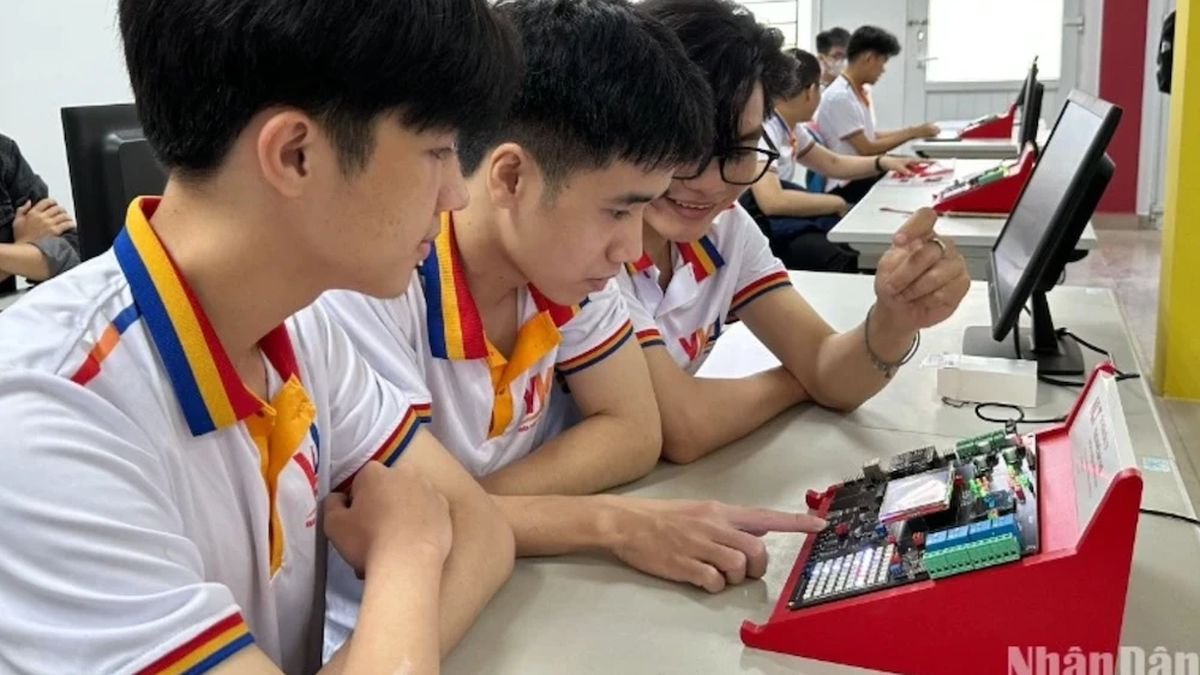
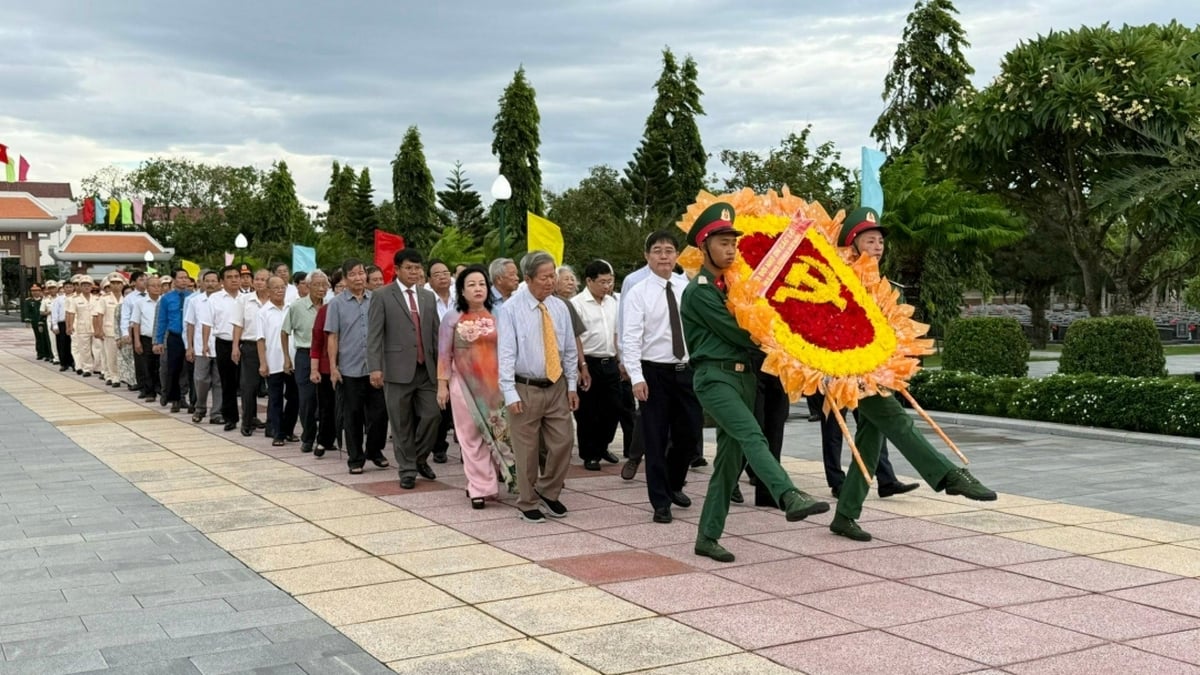



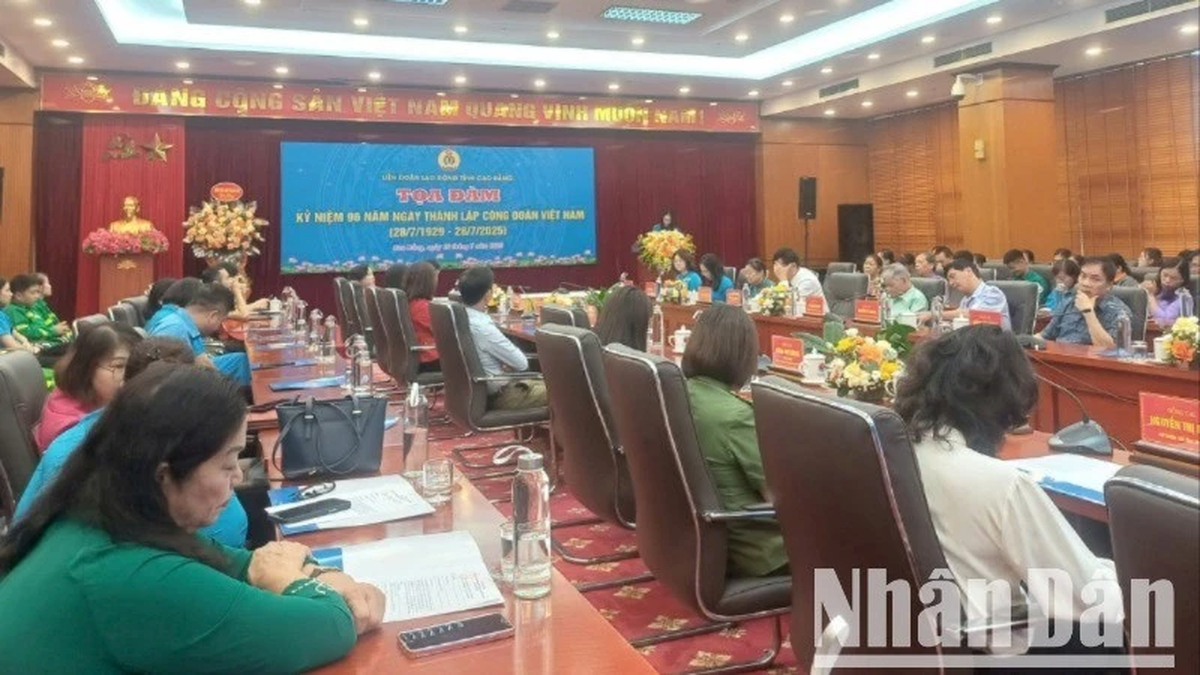










![[Photo] Signing of cooperation between ministries, branches and localities of Vietnam and Senegal](https://vphoto.vietnam.vn/thumb/1200x675/vietnam/resource/IMAGE/2025/7/24/6147c654b0ae4f2793188e982e272651)







































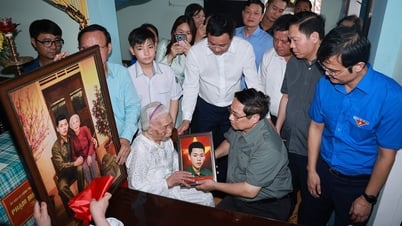
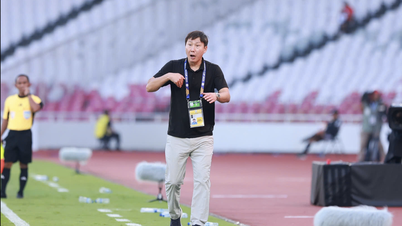










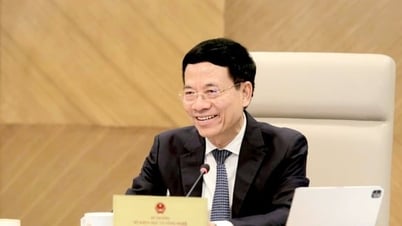

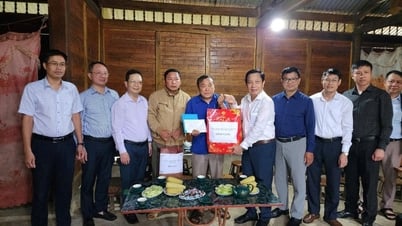
























Comment (0)